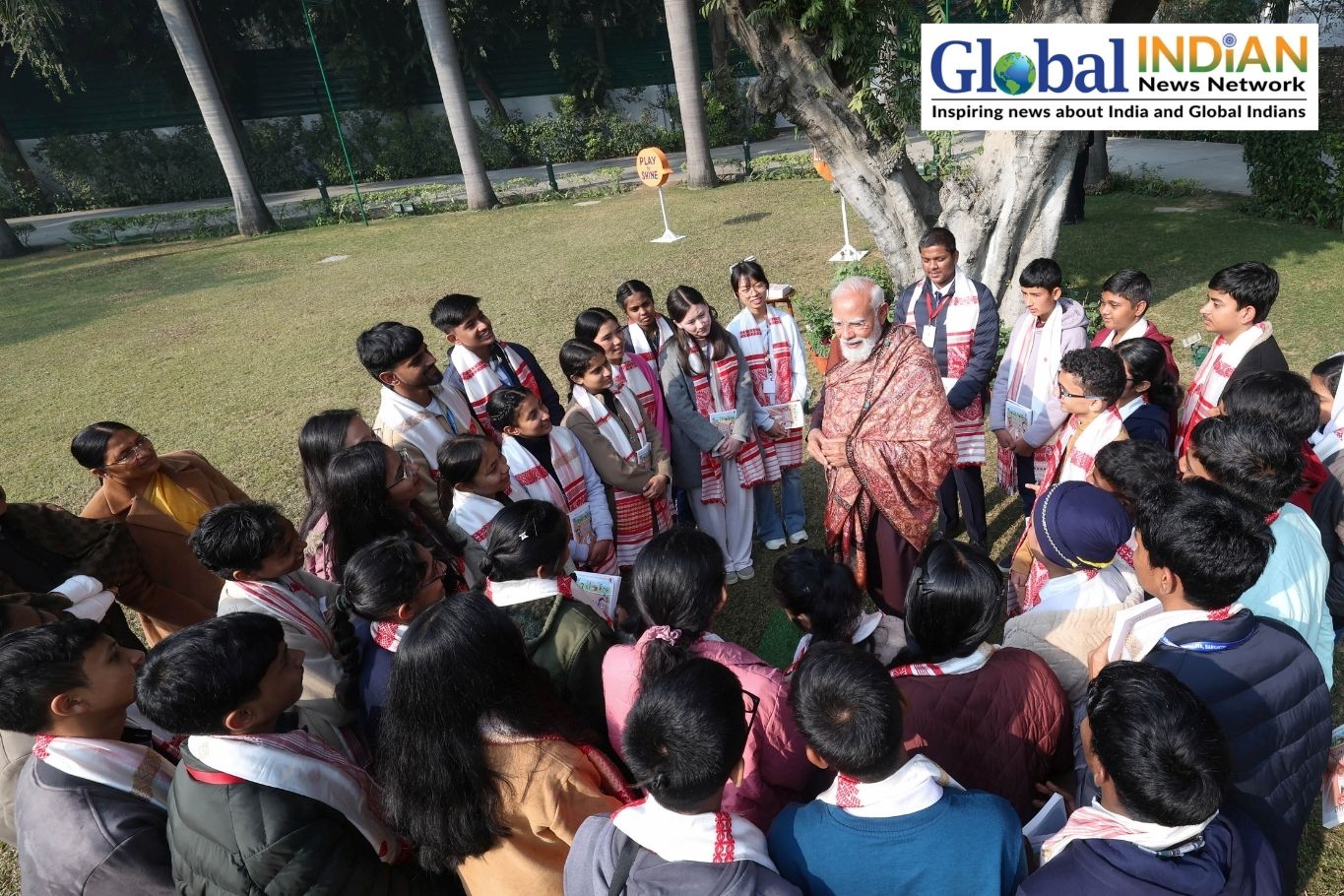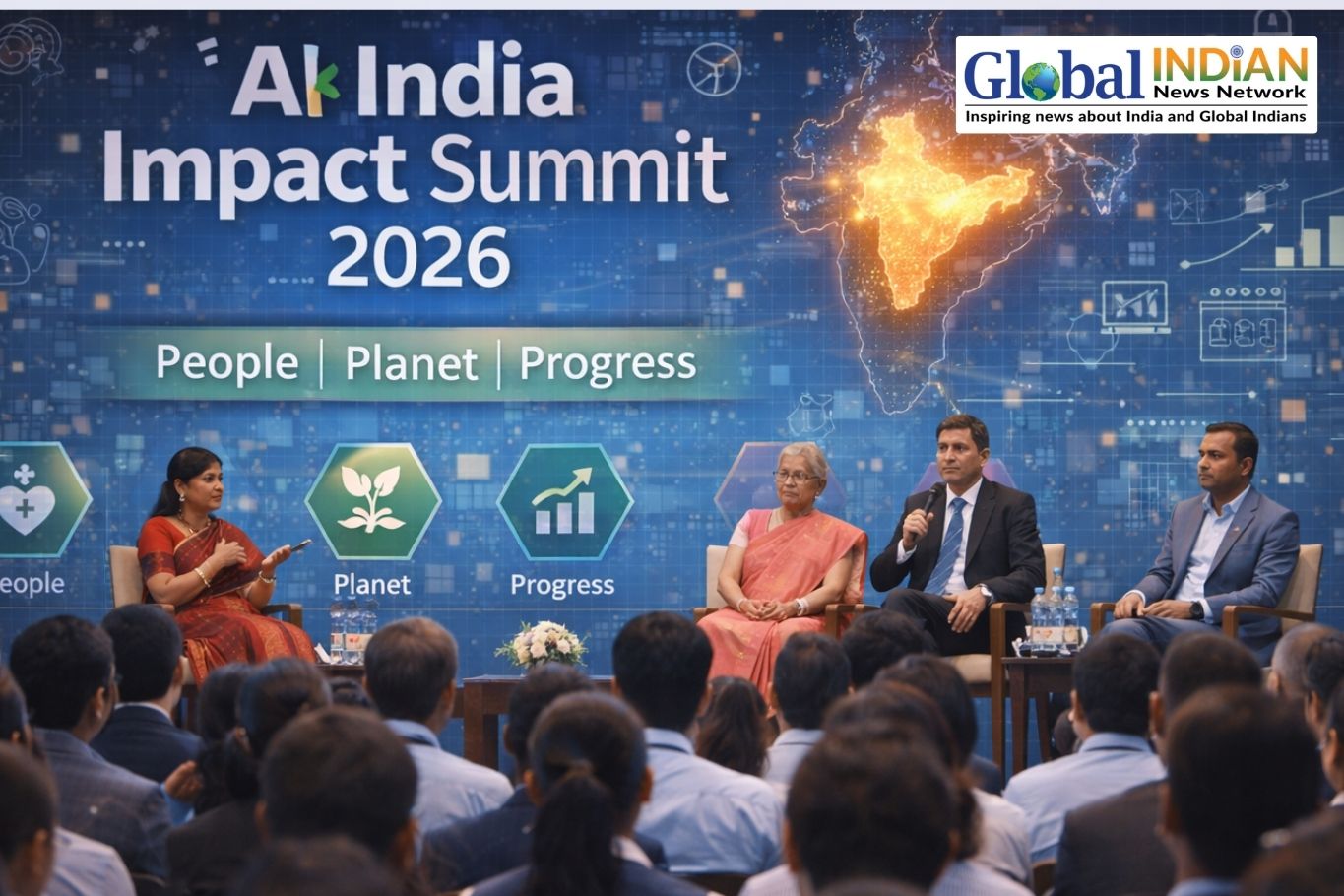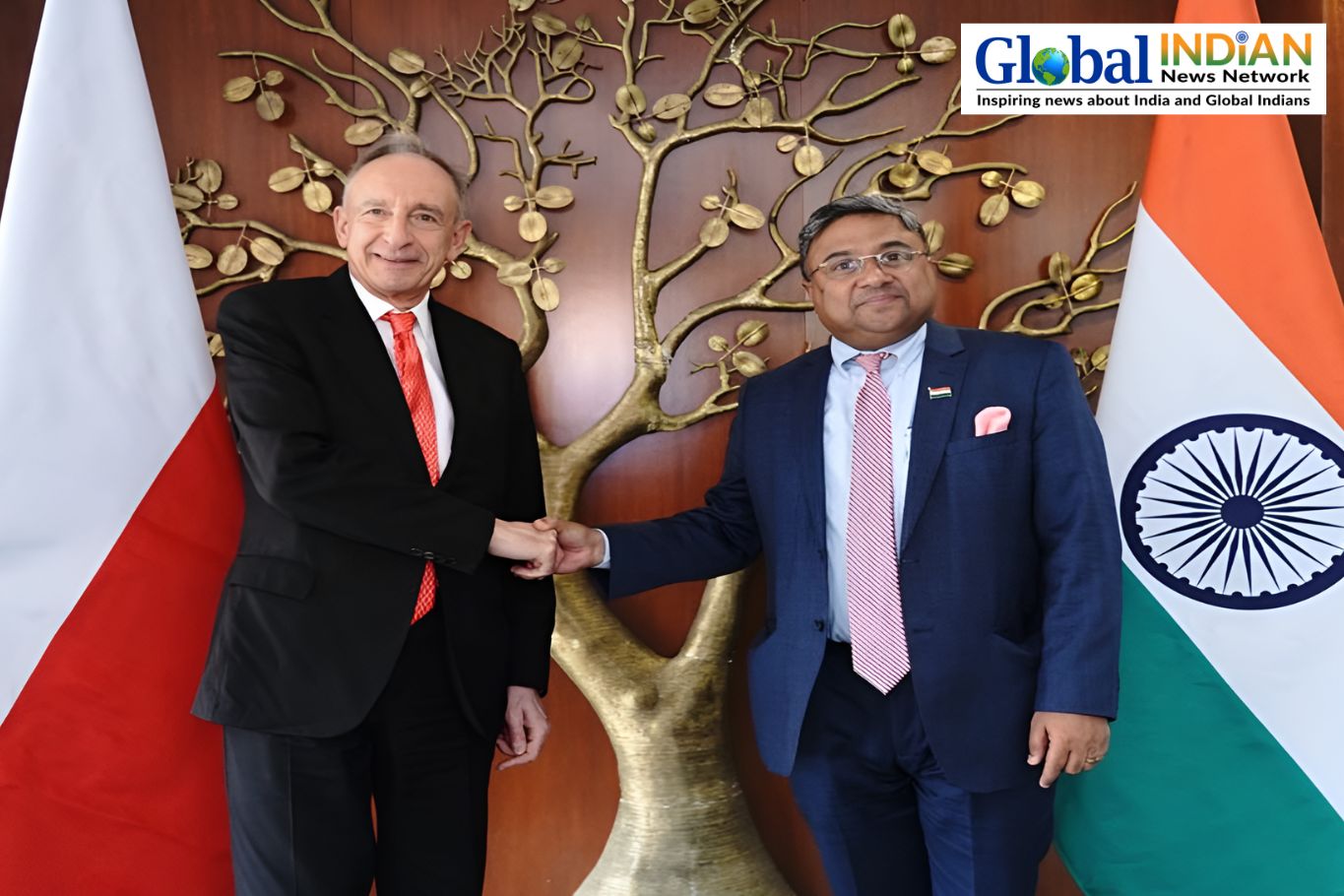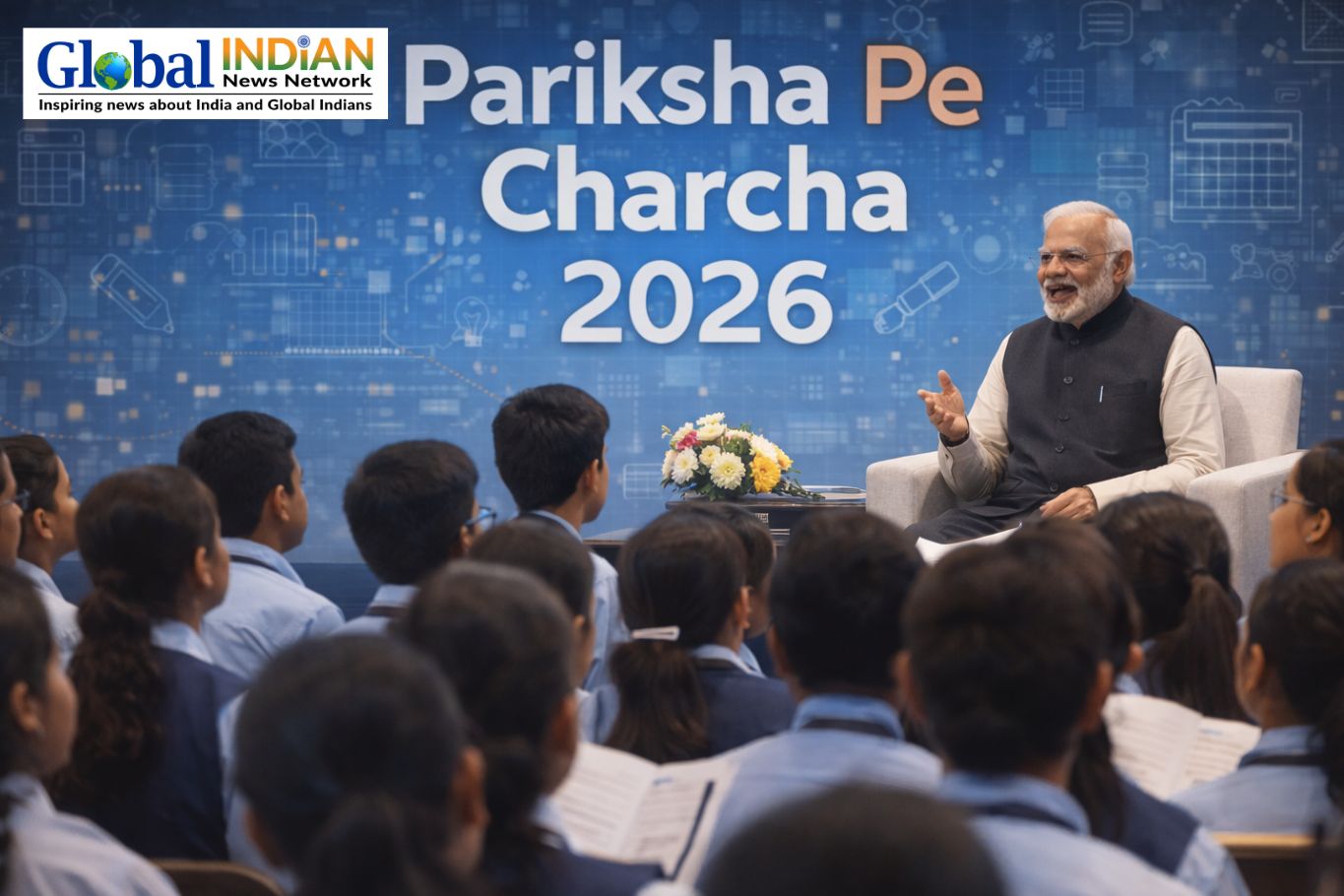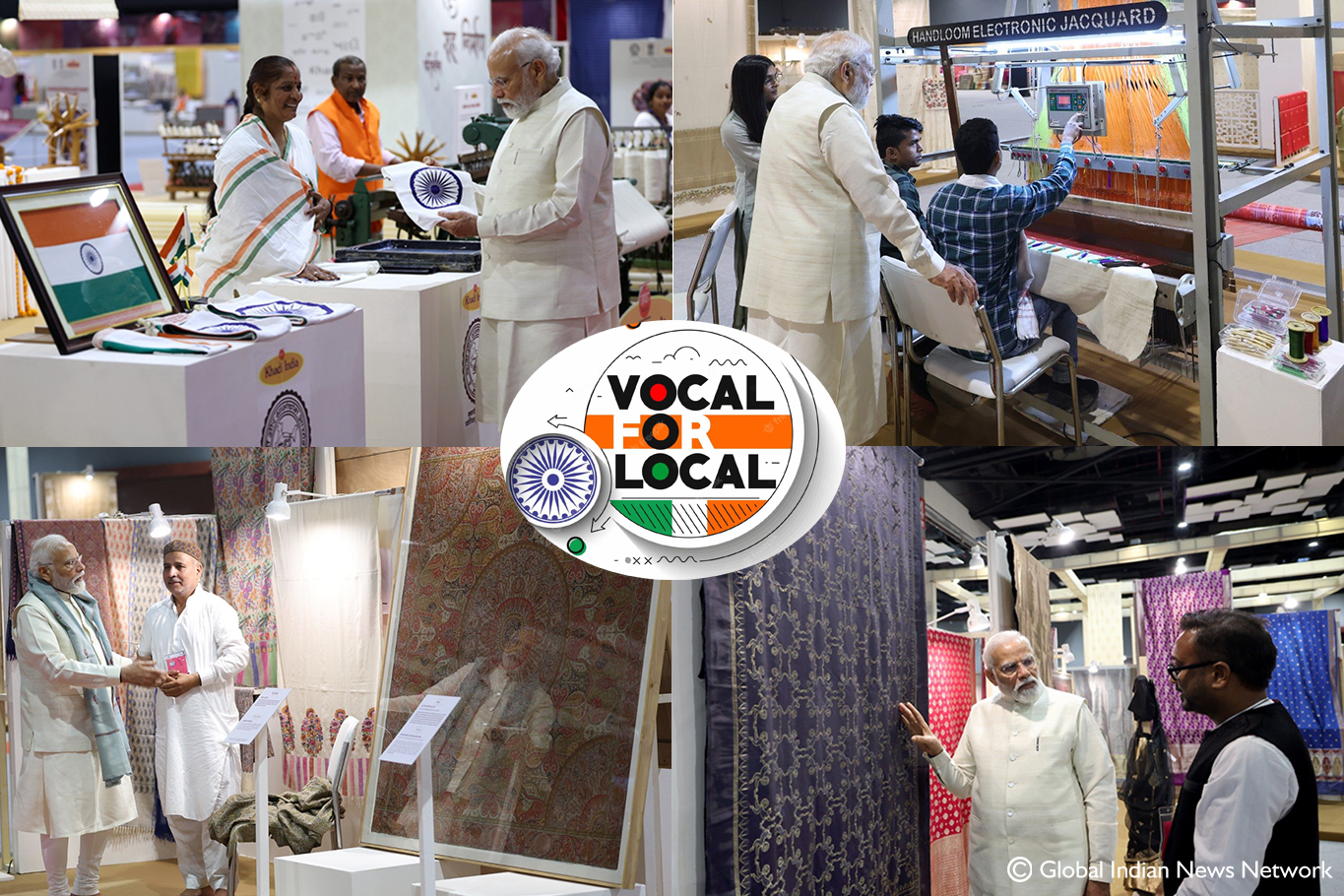 Prime Minister Narendra Modi inaugurated the ‘Bhartiya Vastra evam Shilpa Kosh,’ an e-portal developed by the National Institute of Fashion Technology to promote the marketing of India’s handloom products.
Prime Minister Narendra Modi inaugurated the ‘Bhartiya Vastra evam Shilpa Kosh,’ an e-portal developed by the National Institute of Fashion Technology to promote the marketing of India’s handloom products.
Speaking at the National Handloom Day Celebration at Bharat Mandapam in Delhi’s Pragati Maidan, the Prime Minister reminisced about his emphasis on documenting India’s diverse attire. He expressed satisfaction that this vision has now materialized with the launch of ‘Bhartiya Vastra evam Shilpa Kosh.’
PM Modi underscored the significance of India’s handloom industry, portraying it as a blend of tradition and modernity that characterizes the nation’s present identity.
He informed that the turnover of Khadi and village industries, which was around $301 million to $361 million nine years ago, has surged to over $1.56 billion today. Additionally, an extra $1.21 billion has benefited those connected to the handloom sector in villages and tribal areas.
He explained that the notion of “Vocal for Local” has ignited a revolution in India, motivating citizens to enthusiastically support indigenous products. This movement, he stressed, has become a mass phenomenon.
While India’s identity is rooted in local promotion, PM Modi noted its expanding global presence as well.
He revealed continuous efforts to simplify weavers’ tasks, boost productivity, and enhance quality and designs.
The establishment of ‘Ekta Mall’ in state capitals, dedicated to promoting handicrafts and handloom products, is a step towards strengthening local supply chains and providing a substantial market for weavers.
He hailed Khadi as a symbol of self-reliance and “Make in India,” an emblem of those shaping an empowered India.
Highlighting his interactions with weavers, PM Modi welcomed the diverse handloom clusters participating in the celebration.
He recounted the historic significance of the Swadeshi Movement, launched on August 9, which extended beyond boycotting foreign textiles to nurturing India’s economic autonomy.
PM Modi praised the remarkable strides in expanding the handloom industry and supporting weavers.
While India’s textile legacy is centuries-old, he lamented its post-independence neglect, particularly Khadi’s decline.
From 2014 onwards, he emphasized efforts to rejuvenate Khadi and alter public perceptions. This effort led to a threefold rise in Khadi production over nine years.
Khadi sales increased fivefold, even internationally. He recalled international recognition of Khadi’s appeal during a conversation with a fashion brand’s CEO in Paris.
PM Modi recognized the emergence of a substantial young consumer class as an opportunity for textile companies, urging them to strengthen local supply chains.
He cited the Niti Aayog Report, indicating 13.5 million people lifted from poverty in five years, partly attributed to the growing handloom sector turnover.
PM Modi pledged unwavering commitment to uplifting weavers and craftsmen.
He expressed contentment that the textile sector’s schemes are contributing significantly to social justice, engaging millions of people in handloom work across India’s towns and villages.
“Free ration, proper housing, free treatment up to $70,000 – this is my commitment,” he concluded.

